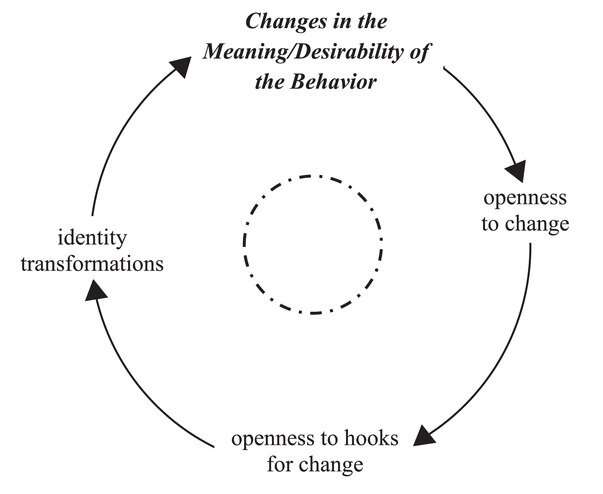Individuals' cognitive transformations key to understanding desistance from crime, argues expert

Much of U.S. criminal justice policy focuses on recidivism, and probation and parole violators make up a considerable share of jail and prison populations. In a new article, a 2022 winner of the Stockholm Prize in Criminology argues that to understand desistance—the process of reducing or ending criminal behavior—we must consider the role of individuals' cognitive transformations.
The article appears in Criminology & Public Policy. It was written by Peggy C. Giordano, Distinguished Research Professor Emeritus of Sociology at Bowling Green State University. Giordano was awarded the Stockholm Prize in Criminology for her research on the effectiveness of offender rehabilitation strategies.
"Researchers have developed methods to capture the process-related aspects of crime cessation," explains Giordano. "But it remains challenging to isolate the most important factors associated with a sustained period of desistance. It is difficult to fully understand desistance without paying attention to cognitive processes, such as attitudes and intentions."
Giordano has studied hundreds of young offenders in Ohio to learn why some stop reoffending while others continue. She identified a pattern of cognitive transformation among those who stop offending. These transformations serve as foundations for social development, Giordano argues, including behavioral changes related to involvement in criminal behavior.
Cognitive shifts need not entail a single "aha" moment, and not all cognitive shifts are related to criminal conduct. Rather, individuals' efforts to redefine themselves are a first step that eventually results in an openness to changing lifestyle or behavior, and to specific catalysts that are more concrete "hooks" for sustained behavioral change.
While this appears to be an individual journey, Giordano stresses that social relationships and broader social contexts are also important. This is because significant others influence individuals' attitudes and behavior, and can be deeply implicated in individuals' efforts to redefine themselves.
"The most basic lesson from our research is that it is necessary to address the realities of desistance as a process," says Giordano. Accordingly, programs that incorporate strategies for handling relapses are likely to have greater promise than zero-tolerance policies. Programs centered on cognitive deficits that require correction will likely have limited effectiveness.
In addition, programs should incorporate more information on how social interaction and communication in relationships affect thinking, behavior, and identity. This differs from deficit-based approaches that focus on individuals' lack of skills and personality problems. Programs should feature strengths-based approaches, focus on aspects of individuals' lives other than their crimes, and recognize the need for longer-term community support.
More information: Peggy C. Giordano, Some cognitive transformations about the dynamics of desistance, Criminology & Public Policy (2022). DOI: 10.1111/1745-9133.12609
Provided by American Society of Criminology



















